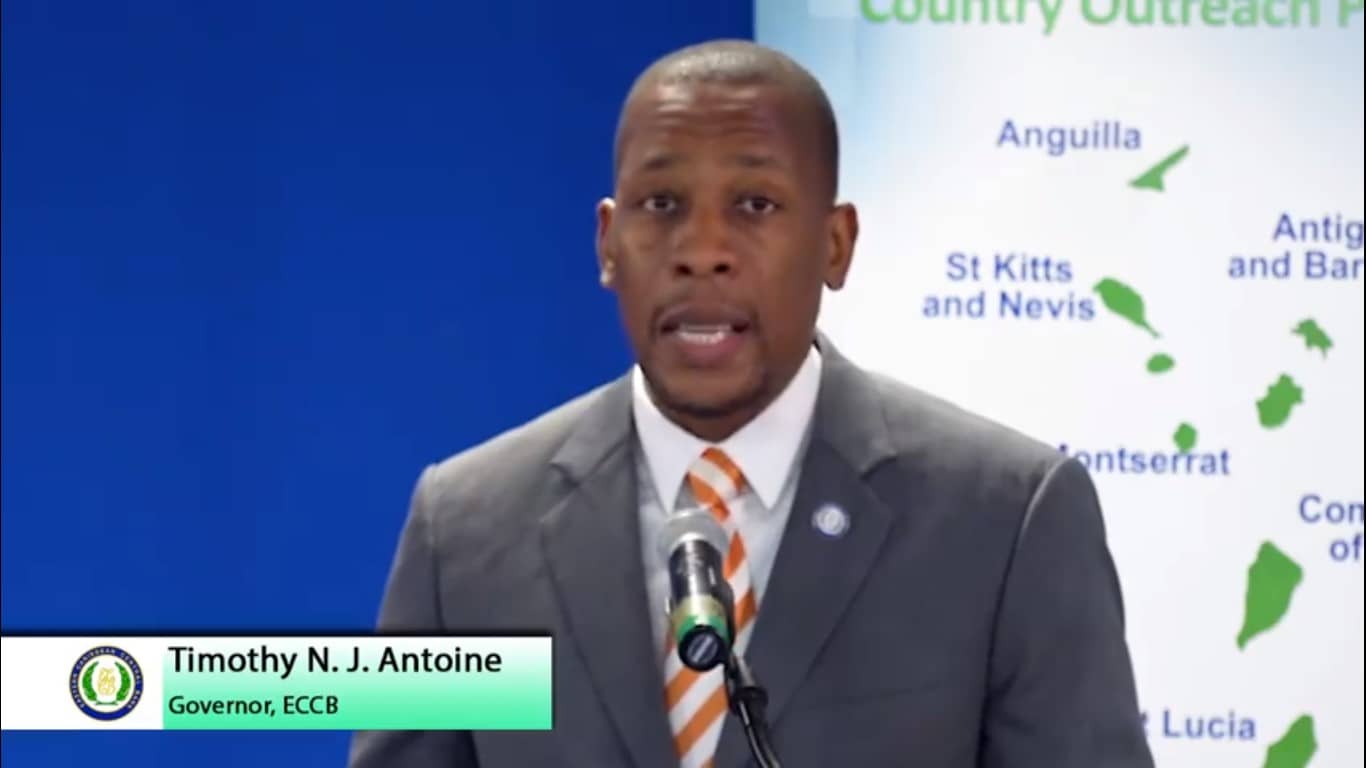
Governor of the Eastern Caribbean Central Bank (ECCB), Timothy N.J. Antoine, says the Bank is committed to support the region’s response to climate change by incorporating climate risks into its risk management framework for the supervision of financial institutions and by promoting innovative sustainable financing for the Eastern Caribbean Currency Union (ECCU).
Speaking on the urgent need for multilateral collaboration in mitigating the effects of shocks and crises that threaten sustainable development goals (SDGs), Governor Antoine said ECCU countries are among the Small Island Developing States (SIDS) that are most impacted by climate change.
Against this backdrop, the ECCB Governor welcomes the partnership of the Agence Française de Développement (AFD) – French Development Agency – which recently spearheaded a capacity-building workshop for the Organisation of Eastern Caribbean States (OECS) and the ECCB, with the support of the Adapt’Action Facility in collaboration with the United Nations Environment Programme Finance Initiative (UNEP-FI).
Addressing attendees at the closing ceremony of the Integrating Climate-related Financial Risks in the Eastern Caribbean training session, the Governor of the ECCB said, “In light of the existential threat that is climate change – in light of the impending climate catastrophe – the importance of this training programme and this partnership cannot be overemphasised.”
Governor Antoine went on to state that the ECCB intends to play a very active role in fighting climate change. “At the Bank level, we declared very clearly, a few years ago, that we would be carbon neutral by 2022, and we are well on track to deliver on that promise,” the Governor of the ECCB remarked referring to the impressive greening efforts that the ECCB is undertaking on its Campus. “In fact, 60 to 70 per cent of all our energy needs are now met from solar PV [photovoltaic technology], and we expect to get to 100 per cent next year,” he added.
The Governor of the ECCB noted that, in taking climate action, climate risk management and sustainable financing must go together.
-more-
In his speech, Governor Antoine emphasised the need for the ECCU to accelerate its renewable energy transition with homegrown solutions, “having regard for the fact that we have not seen the promised climate finance, and having regard for the fact that the ESG market [based on the Environmental, Social and Governance investment model] is not yet working for our region. For example, last year, of the $270 billion issued in green bonds, not one cent, not one cent was issued in our region.”

The Governor of the ECCB said it is therefore incumbent upon the eight countries of the ECCU to “take action ourselves and bring partners with us.”
In this regard, Governor Antoine mentioned that the ECCB is working “very assiduously” with the World Bank and other development partners to launch a Renewable Energy Infrastructure Investment Facility that would have as its mandate the acceleration of the renewable energy transition for the ECCU. The Governor of the ECCB pointed out that the renewable penetration in the ECCU currently stands at about 10 per cent and the intention is to double that figure by 2025 and triple it by 2030 with the support of development agencies. He said a multilateral approach is needed to bridge the financing gap, which has been estimated as US$800 million based on the 2030 Nationally Determined Contributions (NDC) of ECCU member countries.
“The lives of our children and our children’s children depend on our action now,” declared Governor Antoine. He then affirmed to the audience of regional and international partners, “In the ECCB, you will have a strong partner.”
Advertise with the mоѕt vіѕіtеd nеwѕ ѕіtе іn Antigua!
We offer fully customizable and flexible digital marketing packages.
Contact us at [email protected]
















